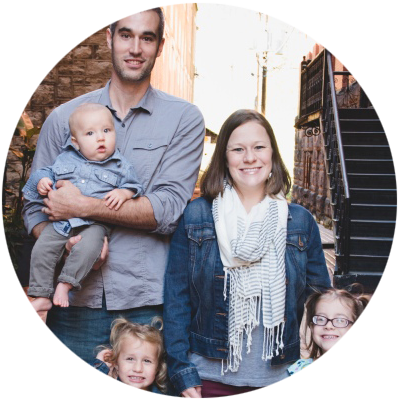Over the past few weeks images of death, destruction, and anger have filled the screens of our phones and televisions. In America, this is nothing new. The sad reality is that African Americans like George Floyd, Ahmaud Arbery, Michael Brown, and others like them have long experienced diminished opportunities in American society and sometimes death at the hands of those tasked with upholding law and order.
What we have seen play out on our streets over the past few weeks is not the first mass protest or the first time pent-up frustration has overflowed into rioting. This time, however, the pushback to the systems of racism that subtly (and sometimes not so subtly) impact the lives people of color has been impossible to ignore. Protests have been more widespread, more enduring, and at times more violent than we have seen in a long time. The heartfelt cry—“Black Lives Matter”—has been taken up by people of all races and backgrounds.
It is still easy, however, for many of us in rural and small-town communities to think of all of the recent protests and turmoil—yes, even racism itself—as primarily urban problems, as if racism, like the coronavirus thus far, might hobble a city like New York but spare more bucolic areas. Seen this way, racism is a problem that those people have. A problem that doesn’t impact us, doesn’t impact me.
This is a comforting idea. Unfortunately, it’s not true.
The sooner we in the rural and small-town church reject the assumption that racism and the current unrest it has ignited are primarily urban problems, the sooner we can step into our calling as part of God’s church, and add Spirit-empowered action to our enduring prayer, “Thy kingdom come, thy will be done, on earth as it is in heaven.”
Aiming for the Kingdom: Small Steps Toward a Worthy Goal
As a child your parents or someone else may have told you to “shoot for the stars” because if you miss your initial target you might at least hit the moon. Trite and cliché, yes. But it’s a good reminder that when we strive for the best and fall short we are still much further ahead than when we acquiesce to mediocrity from the beginning or fail to take up a task at all because it is too hard.
Though all our efforts to live in light of the requirement God has shown us in Micah 6:8 “to do justly, love mercy, and walk humbly” are destined to fall short of perfection on this side of the kingdom of God, we in the church still have a duty to carry on prayerful, Spirit-led and Spirit-empowered efforts to emphasize and commend for wider cultural approval, kingdom values like justice, mercy, and humility.
Right now, the issue calling with bullhorn-like force for this kind response is America’s deeply entrenched forms of systemic racism. (Don’t know what I mean by systemic racism? Check out this short video.) Racism of this type appears not just in personal manifestations through racist individuals, but via the deep-seated systemic problems that have historically made it difficult for African Americans to secure bank loans and mortgages and even the benefits of the GI Bill that helped thousands of Americans move into the middle class in post-World War II America.
Systemic racism shows up in ways that most who are part of the majority culture don’t see, like when African American men like Republican South Carolina Senator Tim Scott get pulled over for no reason. (Let the one who has never signaled a lane change a bit late cast the first stone.)
What Can Small-Town Churches and Pastors Do?
In the face of such a daunting task, what can we do as small-town pastors and churches? Here are a few ideas, offered not as an exhaustive list but as a place to start.
Cultivate Attentiveness
Like many parts of rural America, the county I call home feels pretty homogeneous. At nearly 97% white, one can easily go about the day without encountering any racial diversity. But the appearance of a lack of diversity and its reality are different.
In recent days, racism has been compared to a pandemic. It’s not a perfect metaphor, but it can give us an interesting perspective. At three percent of the county’s total population of 50,668, there are over 1,500 individuals in our rural community who could theoretically be at risk for experiencing racism in some form. If our county had that many individuals suffering from COVID-19 (instead of the fifteen cases we currently have), everyone would be paying attention. Three percent seems small until you consider that three percent is a lot of mothers and fathers, sons and daughters, sisters and brothers.
Listen Well, Listen Humbly
If racial diversity is already a part of our rural communities and churches, then we have an opportunity to actively seek out and listen to the stories of folks who have likely experienced the reality of racism firsthand. Again, this is because racism in its more subtle and systemic forms is often hard for folks in the majority culture to see.
That’s why listening well, and listening even when it makes us uncomfortable, is so important. We can begin by sitting down for coffee with someone whose experience is different than our own. Sometimes we can listen in a group setting. Right now, many of our communities are holding vigils, gatherings, and protest events. These are great opportunities to listen.
Just last Sunday a small group of lay Christians in our small town hosted a grassroots gathering of prayer and listening they called “Together We Can.” It was peaceful, empathetic, and at times candid. The police chief spoke, but so did individuals of color from our local community. It was nowhere near the final step in the journey, but it was a step. It was powerful. God was glorified.
Read Outside Your Comfort Zone
In addition to listening to the personal accounts of people of color within our community, we can also help ourselves as leaders in the rural church by taking the time to intentionally read authors who address the issue of racism—even racism in the church—head on.
If you have not read much about the history of race in this country or thought about how race impacts people’s experience of society and the church, now is a great time to start.
Cultivate A Theological Vision Centered on the Kingdom of God
As I noted near the beginning of this piece, at the heart of the life of the church is the prayer Jesus taught us to pray, a prayer that asks for God to let his kingdom come and his will be done on earth as it is in heaven. As we in the church come to grips once again (or for the first time) with the pervasive blight of racism in our communities of all sizes, we need to anchor our local churches and our wider theological vision on a reality that was at the heart of Jesus’ teaching—the kingdom of God.
In the kingdom of God, the rule and reign of God is complete. That means justice prevails, love defines all relationships, and sin and death are no more. Revelation 21 and 22 are great places to reference if you want to gain a feel for the essence of God’s kingdom. But there is another passage that speaks to that kingdom reality that is less cited.
Revelation 7 offers us an account of the demographics of God’s kingdom. It’s a reality and a diversity more vast than the human mind or human senses can take in. As John looks, he sees “a great multitude that no one could number, from every nation, from all tribes and people and languages, standing before the throne and before the Lamb” (Rev 7:9 ESV).
Here we have the full kaleidoscope of human racial and cultural diversity on display. Rather than downplaying it, God seems to relish it. By including a multitude of races, nationalities, and cultures in the final kingdom, God puts his stamp of approval on human diversity. Every language, every race, is present and equal. If God had wanted a mono-culture he would have made monochrome kingdom. But, praise be to God, he sees in full color! Racial and cultural diversity are welcomed as desirable by God!
This vision—brothers and sisters of every nation, tribe, people, and language before the throne—is what the demographics of the kingdom we regularly ask God to let come on earth as in heaven look like. Wherever we live, it is our task to live, pray, work, and hope in light of this theological vision.
This blog was originally published on ruralministry.org and is reposted here with permission from the author.
About the Author

Charlie Cotherman is administrative director of the Project on Rural Ministry at Grove City College. He is also a pastor at Oil City Vineyard, a church he and his wife Aimee had the privilege of planting in 2016. He has written about rural ministry and church planting for Christianity Today, Evangelicals, Multiply Vineyard, and Sapientia. He is a co-editor of Sent to Flourish: A Guide to Planting and Multiplying Churches and the author of To Think Christianly: A History of L’Abri, Regent College, and the Christian Study Center Movement. He lives with his wife, four children, and a cat in historic Oil City, Pennsylvania.
The views expressed on this site or in this media are those of the speaker(s), author(s), or contributor(s), and do not necessarily represent the views of Vineyard USA or any of its Regions, Ministries or Initiatives. For more information, see the
Vineyard USA disclaimer here.





